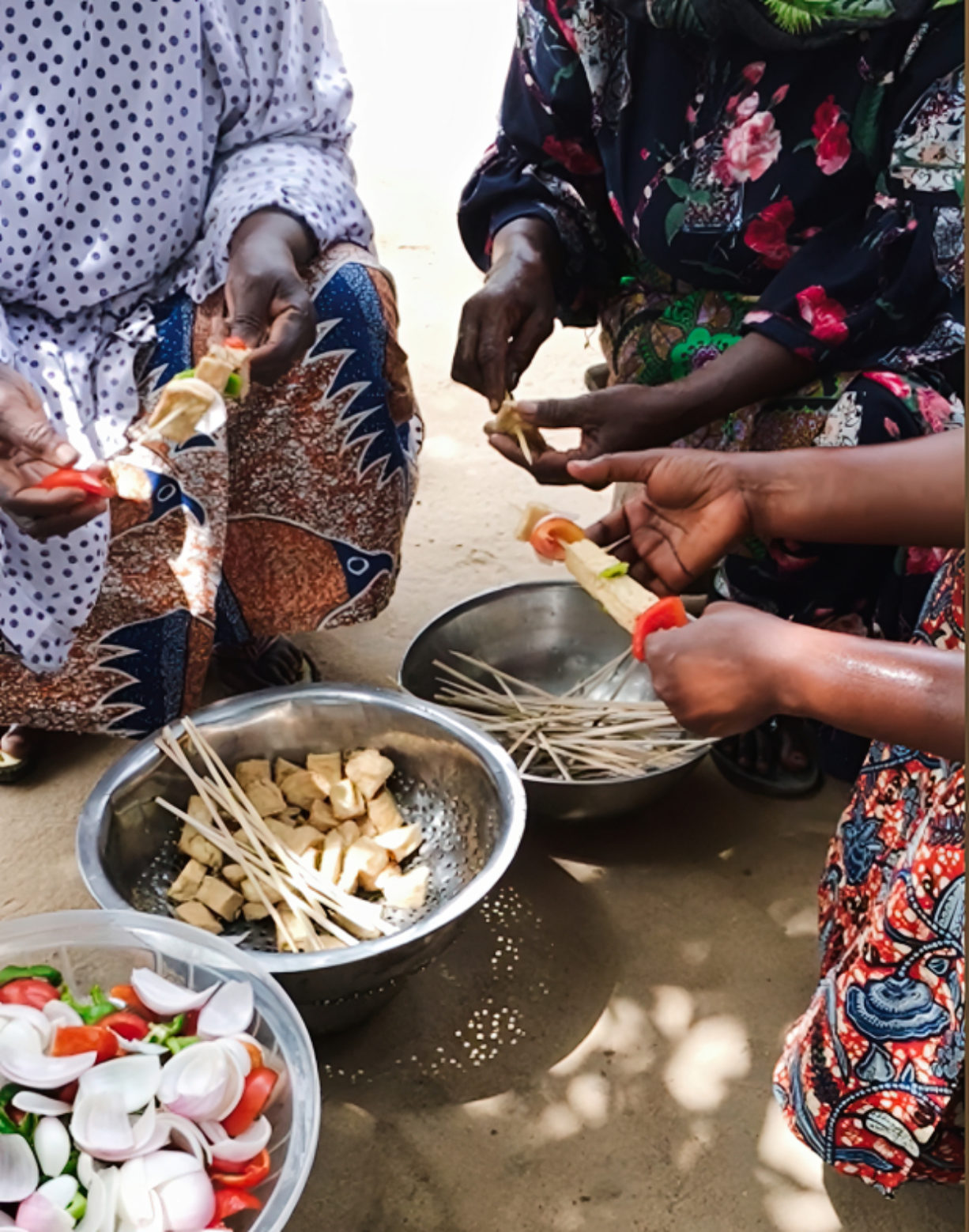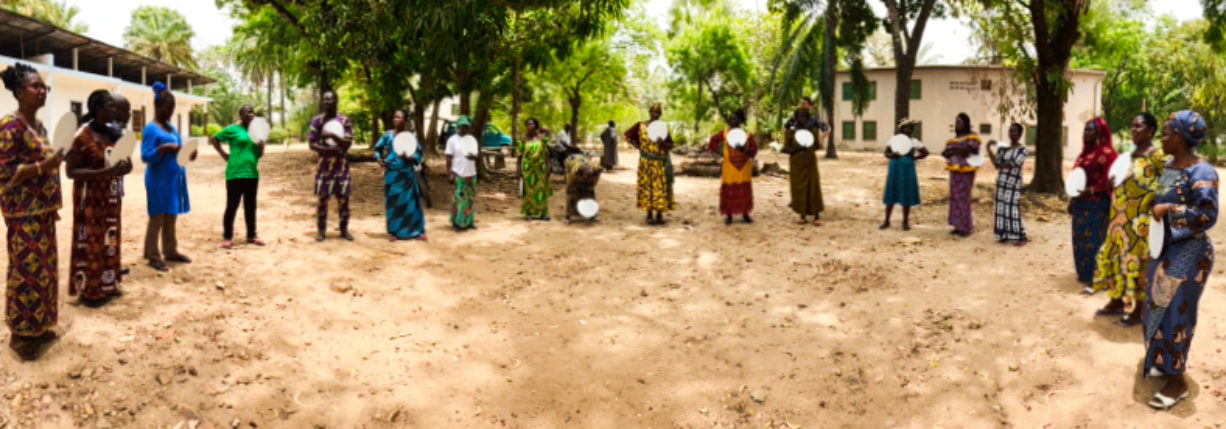In March 2024, we were invited to a cooperative in Sokodé that processes soya beans to manufacture soya milk and tofu. Sokodé is located in the centre of Togo and has been an important trading place since pre-colonial times. The North-South and East-West axes of transport and trade routes in West Africa cross here. Sokodé is to be found in the part of Togo where the tree savanna predominates. What are the main crops here? There are cereals – millet and corn, tuber crops – manioc and yam, and pulses – beans and increasingly soya. Among tree crops, the cashew nut tree has witnessed considerable expansion in the crop area over the last ten years.
“The tofu skewers find local buyers here,” says Lami Madjedje when we ask her whom she sells her products to. “We sell the tofu shashlik skewers to restaurants.” Sales of the skewers could be even better in the future, but at least restaurant owners are open to this plant-based product, Lami Madjedje explains. This pleasantly surprised us – not due to the spiciness, but because of the usual preference being meat.

Lami Madjedje chairs this cooperative. It was founded a good ten years ago as the result of an agricultural development project, funded by the German Federal Ministry for Economic Cooperation and Development (BMZ) and implemented by the Gesellschaft für Internationale Zusammenarbeit (GIZ). At the time, the founders were assisted with the formalities of registering their cooperative. They were also trained in processing agricultural products.
Today, tofu and soya milk production offers women in the cooperative and their families additional economic prospects and employment opportunities. The decisive factor here is that the economic resources and yields are controlled, and used exclusively, by rural women. Women are entrepreneurs here; all the decisions are taken by them alone. Economic independence for rural women is just as important as feeling self-confident in being able to demand a say and achieve participation in (agricultural) economic development.
Ms Madjedje’s cooperative is a member of the rural women’s organisation Réseau National des Femmes Agricultrices du Togo (RENAFAT). RENAFAT is the Togolese national women’s organisation, comparable to the German Landfrauen. RENAFAT’s members are cooperatives that are active in agricultural value chains. They take part in agricultural production, processing and marketing.
Since 2022, Andreas Hermes Akademie has been supporting RENAFAT as part of the global project Strengthening Farmers’ Organisations (StäBo). Its aim is to support RENAFAT in effectively representing its members’ interests at national level. The project receives funding from the German Federal Ministry for Economic Cooperation and Development (BMZ).
RENAFAT is playing a key role in strengthening women’s rights and women in agriculture. For this reason, one of RENAFAT’s key objectives since the start of the collaboration has been to improve its focus on strategy and communication in order to make women in agriculture more visible and to fight for greater rights for them. During our trip to Togo in March 2024, we took the opportunity to visit our partner RENAFAT. We were also able to take part in their workshop on realigning external and internal communication.

Equally, since 2022, AHA has been supporting the young farmers’ association Réseau des jeunes producteurs professionelles agricoles de Togo (REJEPPAT) in Togo. This cooperation also takes place within the framework of the StäBo global project and is also supported by the BMZ. As a young farmers’ association, REJEPPAT in Togo is above all playing a central role in promoting organic farming and young farmers from within. Good, attractive conditions for young people in the agricultural sector are important for a society that is above all very young and has agriculture as a main pillar of gross value creation.
REJEPPPAT and RENAFAT are both playing a crucial role in Togo’s agricultural sector. AHA is supporting both associations in their organisational development. The aim is to develop efficient association structures, providing attractive service offerings geared to the needs of their members and, of course, promoting participation and involvement in agricultural and rural development in Togo. Both organisations’ head offices are located in Sokodé. The workshops held as part of the organisational development support also take place there.
With AHA support, REJEPPAT is also aligning itself even better in terms of communication and strategy in order to better meet the needs of its existing and new members. During our visit to Sokodé in March 2024, we were also able to take part in REJEPPAT’s workshop to discuss their new strategy. The topic of agroecology will continue to be of paramount importance for REJEPPAT – as will offering quality services to its members and ensuring the voice of young people is heard at national level.
This article has jointly been written by Julian Friesinger and Peter Keller, Senior Expert in Organizational Development – AHA international.
This could be of interest to you:
-
International Cooperation -
International Cooperation How NWAB in Zambia is forging stronger ties with its members
Read -
International Cooperation Young agricultural stars in western and southern Africa
Read